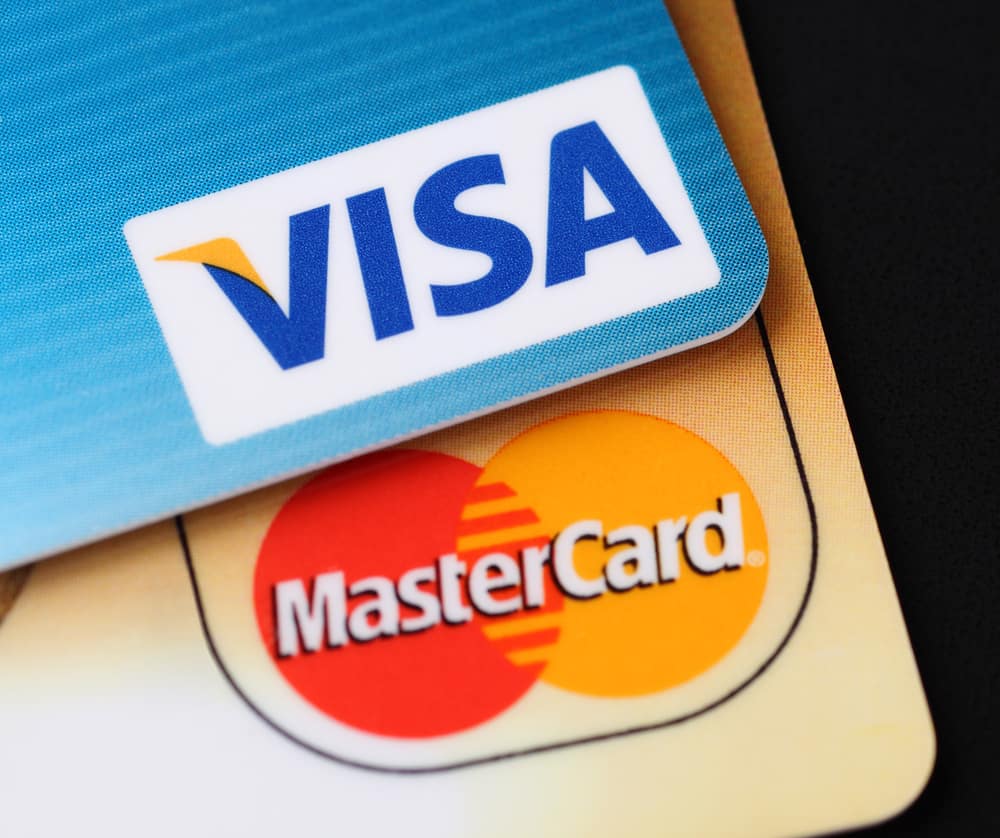The two credit card giants Visa and MasterCard which were founded 1958 and 1966 respectively are wrestling to claim their space in the development of blockchain technology.
MasterCard announced in late October that it will start offering three blockchain mobile API’s to business customers, a blockchain core API, smart contracts and a fast settlement API.
In MasterCard’s 2015 Annual Report, with startling honesty it remarked:
MasterCard’s virtues are well-appreciated by the stock market but the evolution of mobile payment habits and the rise of blockchain ledger technology could pose longer term challenges to the company’s wildly profitable business model…we expect future returns will be more modest.
MasterCard has come late to blockchain after initially dismissing it, and is also behind its rival Visa, who started tinkering with blockchain technology by using smart contracts to handle regulatory and compliance requirements of interbank transfers in 2015.
But the two credit card companies are lagging in their development and thinking on blockchain and are thwarted by the transparent and decentralized nature of blockchain technology itself.
In August, Visa filed a patent with the US Patents and Trademark Office to use blockchain to smooth and simplify international transactions.
The patent though is broad in scope and doesn’t demonstrate anything remotely unique about Visa’s intended use of the blockchain. It would not be sufficient to be granted a patent in Europe, going by the EUIPO’s more stringent requirements for patents to be unique in the design and applications.
Mobile technology, the lack of physical banks and corruption are pushing the progress and roll out of mobile payments in developing countries, which may signal the end of cash and credit card payments there, the effects of which will flow into the developed world.
The United Nation’s World Food Program this year successfully trialed payments for food that were sent via Ethereum direct to the local retailer. The recipient of the aid then showed the shopkeeper a unique code on their mobile phone, thereby unlocking the credit so the person could get their food supplies without any physical money being exchanged.
David Siegel CEO and founder of 2030.io, a worldwide movement of blockchain innovators said:
Absolutely credit cards will be a thing of the past very soon. I’m guessing it will take 30 years from start to finish, and it starts now. But the going will be slow. Sort of like the switch to digital photography – that took 20 years.
Credit card companies are in a serious panic, which is why they have crypto-labs and try to send out press releases that make them look like they are ‘all about harnessing the power of the blockchain.’ I’m not sure they have much choice, and I’m not sure it will help one bit.
The CEO of Ethereum Vitalink Buterin is even more bullish about how long it will take for blockchain to replace credit cards, and has been quoted as saying they could start to be replaced in just a couple of years.
But before Ethereum can compete with the likes of Visa and MasterCard, the speed of transactions needs to get to real-time levels.
Bitcoin is processing a bit less than three transactions per second
Buterin explained to Tech Crunch magazine in September.
Ethereum is doing five a second. Uber gives 12 rides a second. It will take a couple of years for the blockchain to replace Visa.
To give a sense of the scale of global credit card transactions, Visa operates a proprietary transaction processing network called VisaNet and states that the network is capable of handling more than 24,000 transactions per second.
Perhaps we will have to await the arrival of 5G and IoT technologies to release the brake on blockchain’s unlimited potential to disrupt every single industry, not just the financial sector.
